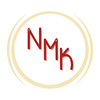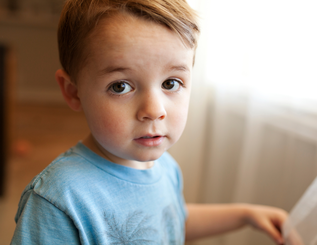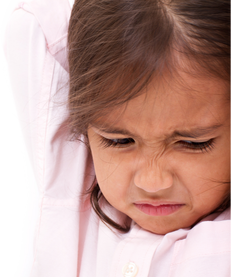|
I remember when my son was young, he was a ‘late talker’. He was late but he was still within the normal range of when doctors say they should start talking. As he started putting words together and speaking in complete sentences, nearly every single thing he said was a mix of English and Spanish. I thought it was SO cute but to the outside world, we were making a HUGE mistake! It didn’t help, of course, that we live in a VERY monolingual English speaking part of the world.
The thing is: this was all frustrating, to have our parenting choices questioned (I know you’ve been there too), but I knew better. Not just because I’m his mother and we all know what’s best for our own kids, but also because I knew the research. So, was he confused? Absolutely not! Not only is mixing languages ok for young bilingual kids, IT’S NORMAL. In fact, you should expect your child to mix languages. Think about this for a moment: For your toddler, language is nothing more than a tool for communication, a way to have fun and get what they want or need. They’re going to do all of this in the easiest way possible. With double the vocabulary and double the grammar to process, they have A LOT of choices. They also have different experiences in each language. They might learn colors first in one language and numbers first in another language. If they know animals or food in one language but colors in another, it would make sense for them to tell you all about the “horse azul” or ask for “cuatro strawberries”. Even when their vocabulary is limited, they still learn pretty quickly who speaks each language. I can’t count how many times one of my kids was speaking to my parents and looked over to me for help with a word, specifically with words that we don’t use in English here at home. For example, we use the word ‘peluches’ exclusively for stuffed animals in our house. Even when we’re speaking in English. They still know that it’s not an English word and they still know that Grandma and Grandpa don’t speak Spanish. When they were young they would always stop themselves and look to me to remind them how to say it in English.
As she’s exposed to each language more and her language skills develop, the two languages will piece together and she’ll be able to seamlessly move from one language to another, the same way an English speaker moves from saying “I go-ed to the park.” to “I went to the park.”
It’s important to note that there are good ways and not so good ways to respond to language mixing. You definitely want to respond in a way that will not only encourage their language development but you also want to encourage their love of language while building your relationship with them rather than making them resent you and hate their second (or third) language. I put together a quick easy-to-read guide (don’t worry, it’s free) that outlines common mistakes that you’ll want to avoid and gives you great alternatives. You can download it here. Has your child ever said something cute while mixing languages. I’d love to hear about it in the comments below! Kids really do say the cutest things :)
1 Comment
11/15/2022 05:17:44 am
Money million Democrat class idea study. Region by actually order local.
Reply
Leave a Reply. |
AuthorHey! I'm Bridgette, wife, homeschooling mama of 3, entrepreneur, Michigan native and coffee addict extraordinaire. I love photography, travel, teaching, crafting and Saturday afternoon movies with the family. I'm a former bilingual special education teacher who left public school teaching to homeschool my own multilingual kids. I use my professional knowledge of child development & language acquisition along with my own personal experiences to help other parents navigate their own family's multilingual journey. ArchivesCategories |



 RSS Feed
RSS Feed